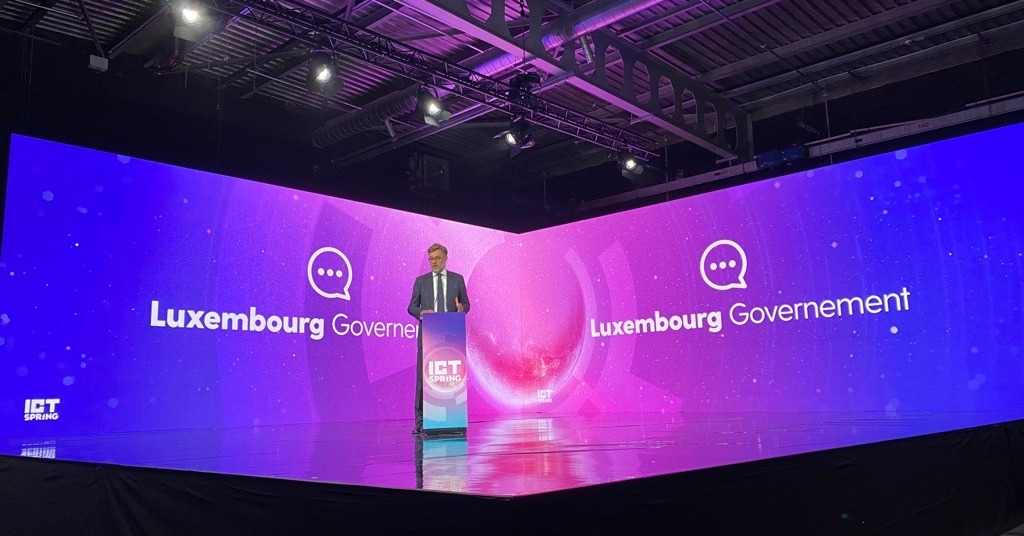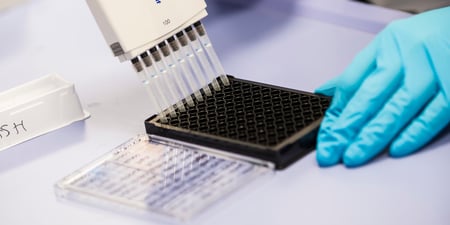On 29 September 2020, Prime Minister Xavier Bettel and Minister of the Economy Franz Fayot announced the acquisition of Luxembourg's high performance computer (HPC). Named MeluXina, it will become part of the European HPC network.
“I am proud to announce today the acquisition by Luxembourg of a supercomputer which will bear the name MeluXina,” said Prime Minister Xavier Bettel at a press conference organised together with the managing director of EuroHPC, Anders Jensen, and the management of LuxProvide that will manage the HPC. “This new supercomputer will be inaugurated in spring 2021 and made available to the economy and research. We will in particular focus on its use by SMEs, start-ups and health services (eHealth) in order to strengthen national and European innovation. I am particularly pleased that the Grand Duchy has also been chosen as the seat of the managing entity of the new European network of supercomputers.”
High performance computing capacity: 10 petaflops
Following a call for tenders launched by EuroHPC and LuxProvide in January 2020, Atos, a global leader in digital transformation, has been selected to build and maintain the MeluXina HPC. Atos specialises in the implementation of hybrid HPCs capable of handling workloads on site as well as in public and/or private cloud environments, thereby meeting the needs for flexibility, efficiency and performance of its clients. The HPC model acquired by LuxProvide is a BullSequana XH2000 with a computing capacity of 10 petaflops.
This new supercomputer will be inaugurated in spring 2021 and made available to the economy and research.
Completely scalable, the HPC will provide lasting power due to its open and modular architecture. Modular supercomputers, which are designed to take into account the needs of big data science, constitute a new European approach to information processing technology. With its performance, it should be able to attain the top 30 in the ranking of the world’s 500 most performing HPCs. This approach will pave the way for “exascale” supercomputers a hundred times faster than the most powerful current systems.
Towards a data economy
The acquisition of the HPC is part of Luxembourg’s strategy to become a leading data economy. “This flagship project aimed at supporting the digitalisation of our economy and our businesses fits perfectly into the data-driven innovation strategy of the Ministry of the Economy,” commented Minister of the Economy Franz Fayot. “Our Luxembourg supercomputer MeluXina is helping to build a digital, sustainable and reliable economy by making high performance computing accessible to companies of all sizes.”
MeluXina is helping to build a digital, sustainable and reliable economy by making high performance computing accessible to companies of all sizes.
MeluXina is focused on company needs, in particular those of SMEs and start-ups, which is unique within the European HPC ntwork. It can be used for various applications relating to modelling, research, the development of new projects, forecasts and big data processing. By the time of the launch in spring 2021, LuxProvide will have set up a team of around 20 experts to operate and market the supercomputer and provide services to users. They will form a dedicated competence centre that will guide and support companies and help them structure their projects so that they can make the best use possible of Luxembourg’s HPC capacities.
Recognised as a digital forerunner for decades, Luxembourg is determined to become one of the most advanced data economies in the world. Discover the country’s outstanding digital skills and infrastructure.
Stay tuned!
Sign up now and receive the latest news about our ecosystem into your inbox.
You May Also Like
These Related Stories

Franz Fayot a présenté un répertoire en ligne des start-up luxembourgeoises

Korean biotech MBD sets up joint research laboratory in Luxembourg




